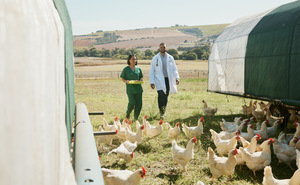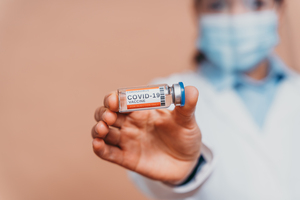COVID-19 is a contagious respiratory illness caused by the SARS-CoV-2 virus. It spreads through respiratory droplets from coughs, sneezes, or close contact with infected individuals. Symptoms can range from mild (like sore throat or fatigue) to severe (such as difficulty breathing or pneumonia).
While many recover without complications, COVID-19 can lead to serious illness—especially in older adults and those with underlying health conditions. Vaccination, testing, and timely treatment help reduce the risk of severe outcomes and limit the spread of the virus in communities.







